So, what is stopping us
from
listening to our Intuition?
Some of the latest Neuropsychological research points the way,
but before we can delve into that, lets make sure we are on the same page about a couple of things.
First, is there such a thing as "Intuition"?
| Dictionary.com | 1. direct perception of truth, fact, etc., independent of any reasoning process; immediate apprehension. 2. a fact, truth, etc., perceived in this way. 3. a keen and quick insight. 4. the quality or ability of having such direct perception or quick insight. |
The American Heritage Dictionary |
1. The act or faculty of knowing or sensing without the use of rational processes; immediate cognition. 2. A sense of something not evident or deducible; an impression. |
So, in the example I refer to, I got a "sense of something not evident or deductible; an impression" that something would go wrong.
We all perceive such impressions, to a greater or lesser degree, through out our lives. I also suggest that such impressions come
from "God", but we should realize that that is simply my preference of words. I could just as well call it the Unknowable, Zeitgeist,
Quantum soup, or whatever. The fact is that we simply do not know where it originates.
Second, I'll be using a metaphor of our "Body as a Machine"
In the old days people liked to equate the body to a steam engine,
with the heart supplying the steam
to all its components,
the digestive system supplying the fuel and the lungs supplying the oxygen
to carry out the combustion to produce the steam that would power the muscles
to do the work, etc.

I think we can now upgrade that machine to some sort of "electromechanical" device controlled
by a very intricate electronic central processor and associated circuitry.
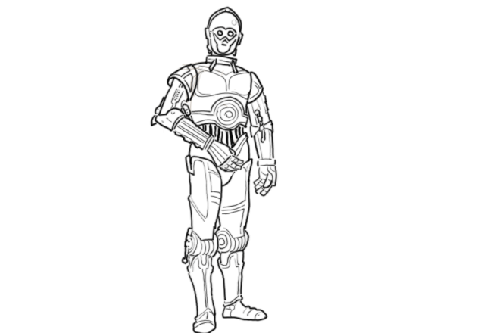
and like all good electronic machinery, it is controlled by "software",
that is, sets of instructions that tell the organs what to do and when to do it.
Much of this software is automatic. It doesn't require the intervention of the person,
for example, the digestion of food is done without one 'willing' it to happen.
It is done automatically. So it is for the operation of our vital organs, lungs, heart, spleen, etc.
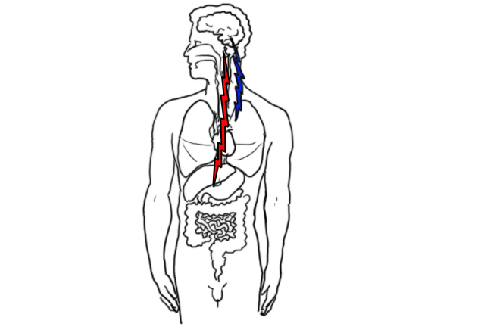
The 'software' for this operations seem to reside in the 'reptilian' portion of our brain,
or even in the spinal cord, the most basic and oldest portion of our nervous system.
Other software programs are first LEARNED and then made automatic. An example of this
type of 'software' is walking. Walking consist of the continuous balancing between falling
forward and moving our lower limbs forward to prevent the fall of our body, and moving our arms
to maintain our balance. We learn this as a child at the expense of many collisions with the floor
and various other obstacles.
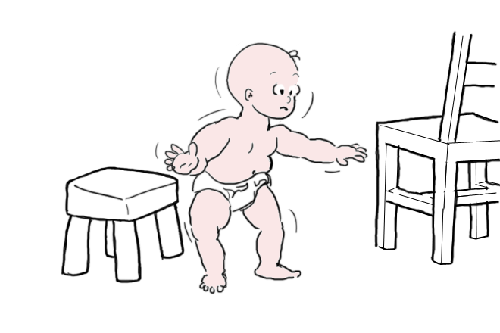
But once we learn how to do it, the 'software' for walking, that is, the 'instructions' for our body
of how to move first one leg and arm in certain direction, then the opposite side to follow suit, and so forth,
is 'stored' somewhere in our brain and from then on done automatically. All "I" need to do is
"will" the body to move in certain direction and it will do it, faithfully, without any more intervention from "me".
I don't have to think about "how" to walk anymore. I just "walk" in what ever direction I want.
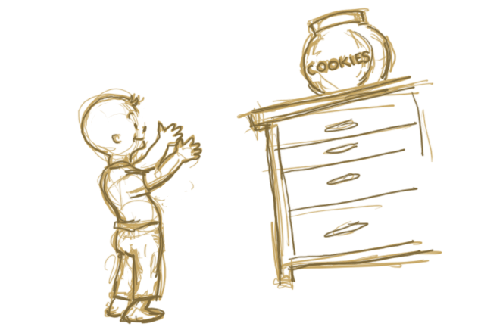
Another easily understood learned software program is riding a bicycle.
Once you learn how to move your body in this and that way so as not to fall
those instructions, that 'software routine', is stored somewhere in your brain,
and/or in your muscles (it is not precisely known), ready to be used
whenever called upon to operate and it will remain there for many years.
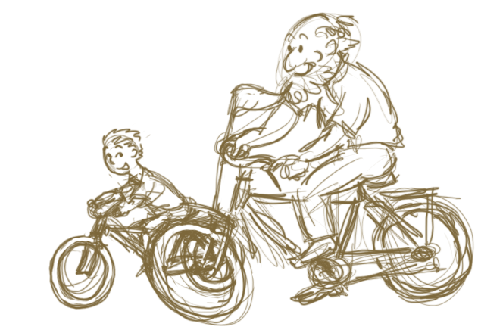
We could say that as we learn an activity we are writing the software program to
instruct our body what to do
Some of these learned programs are not written by us, such as manners.
These are instructions, learned through the culture we live in, to smooth the
relations and work we do with other member of our community.
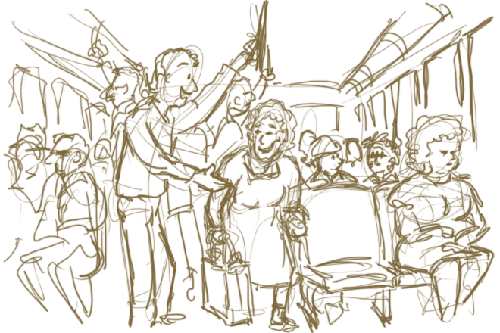
And generally, we have a choice of
whether to follow these 'software' programs or not.
Sometimes, wisely, we do, sometimes we don't, but it is a choice we make.
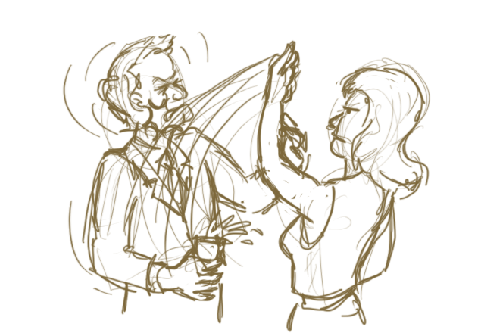
Another such learned program not written by us, that is easy to see, is patriotism.
It usually consists of some form of
"WE are good, THEY are bad" (or at least "not as good as US")
accompanied by sundry national stories that justify such statement.

Another such learned program not written by us, that is easy to see, is religion.
It usually consists of some form of
"WE know the TRUTH about God, THEY don't "
accompanied by sundry stories that justify such statement.

If you are a person of Faith, please stay with me a little longer.
I mean no disrespect to your beliefs. For all I know your beliefs may be THE true ones.
I just have no way of KNOWING for sure, since EVERY religion claims to be such a thing.
If you are a non believer, the question still remains, how is it possible that every religion can claim to be the true word of God?
How do they know theirs IS the true one?
It is the same with patriotism. How do they KNOW that their country is good
and the others are not? (or not AS good as theirs?)
The answers to these questions can be found in the results of what recent
neuropsychological studies have discovered, and it has to do with a 'software program'
similar to the ones I've been talking about.